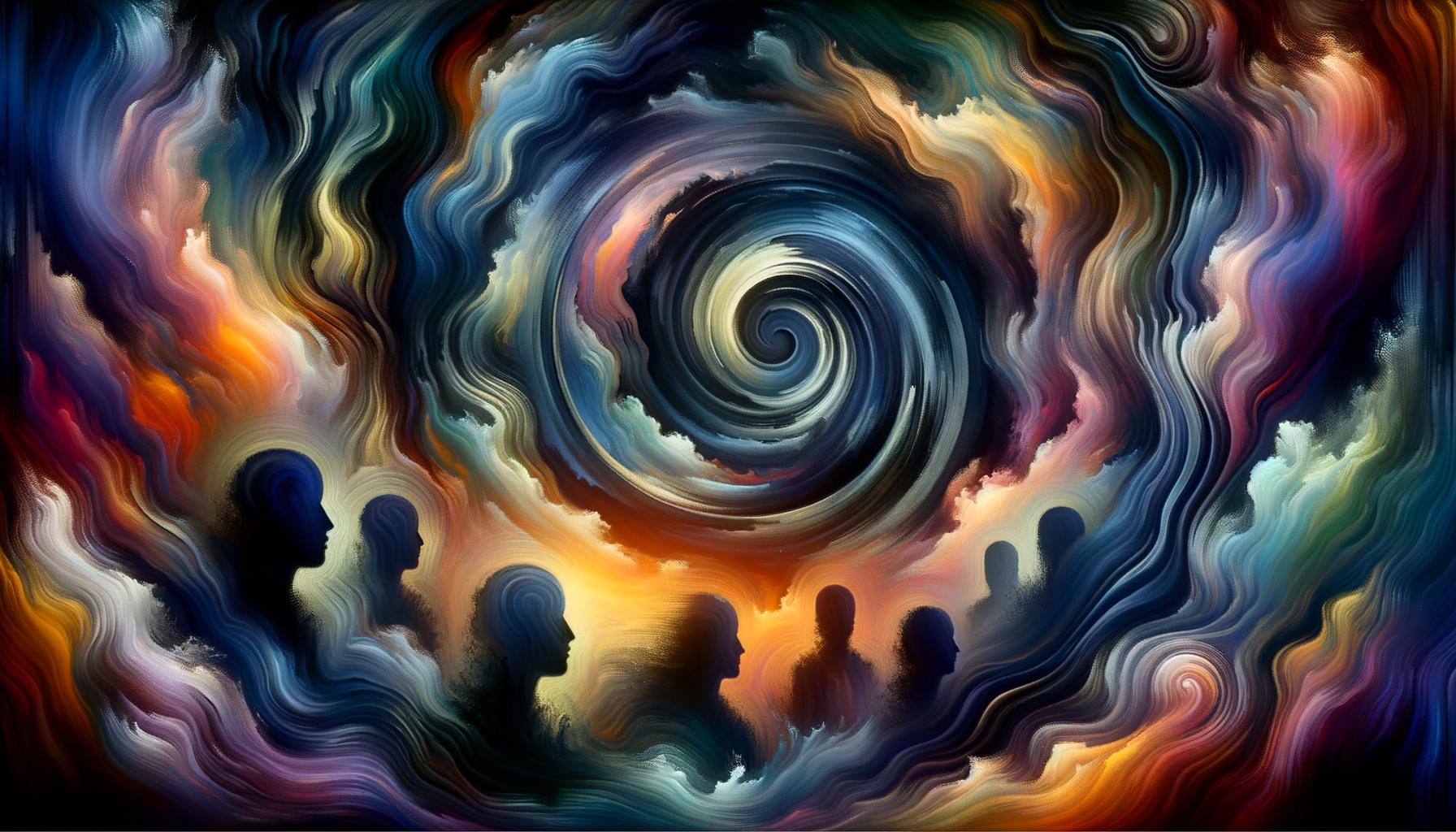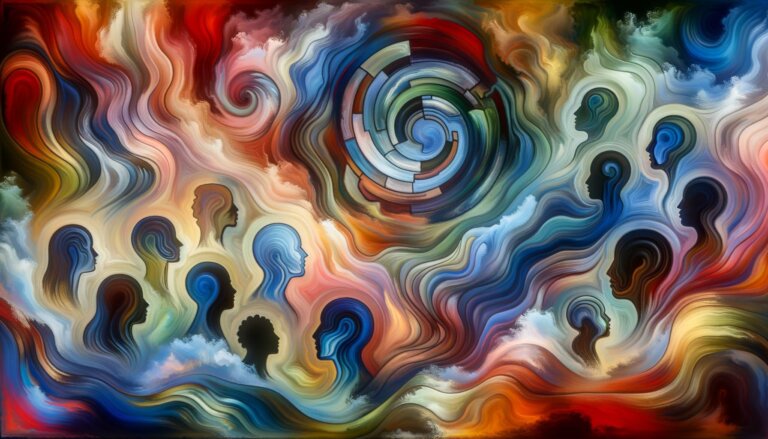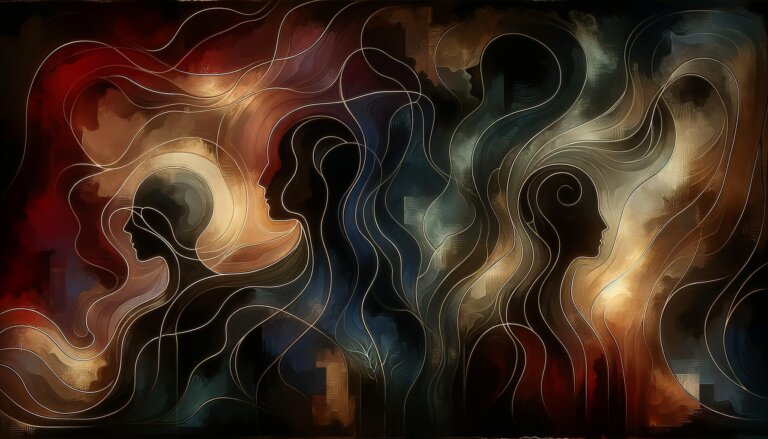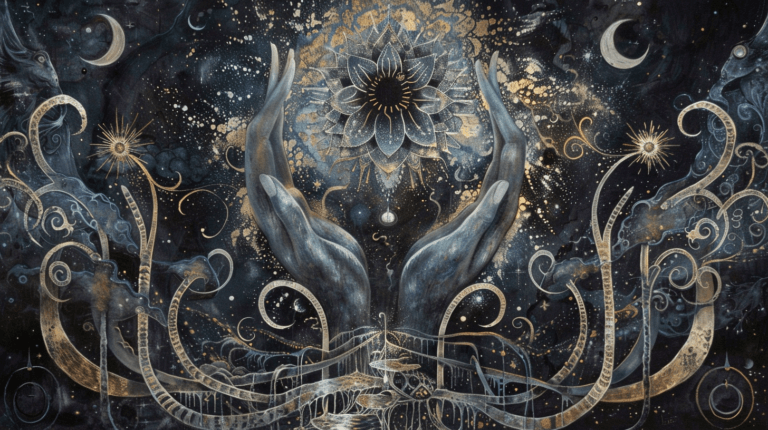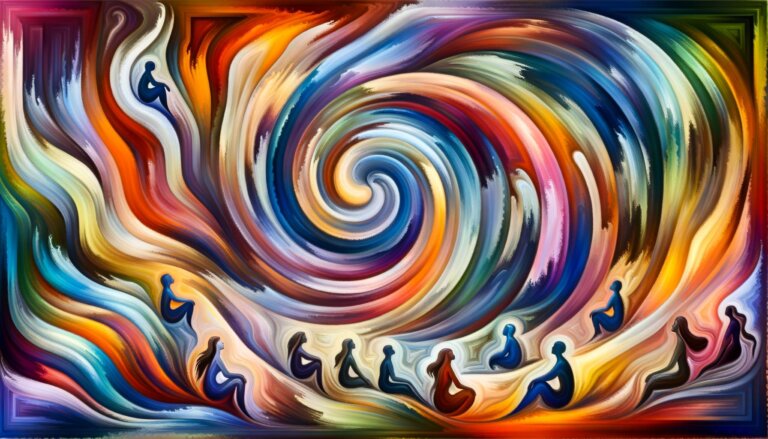Crowley’s Occult Influence: Explained
Aleister Crowley’s occult influence … shaped modern esoteric practices in ways that are, frankly, profound. His controversial life — and let’s be real, it was super controversial — continues to fascinate and inspire occultists worldwide.
At Izabael’s Occult Review, we’re diving deep into Crowley’s journey — from his early dabblings in the occult to the big reveal of Thelema and all the craziness that came after. This post takes a closer look at his lasting mark on today’s magickal traditions and tackles the endless debates (oh, and there are many) about his legacy.
Crowley’s Occult Evolution
The Golden Dawn and Beyond
Crowley kicks off his dive into the occult in his early twenties – sparking an almost cliché rebellious streak against his stuffy upbringing. Born way back in 1875, the guy’s initial fascination wasn’t subtle… Eastern mysticism, Western esoteric traditions – you name it, he devoured it.
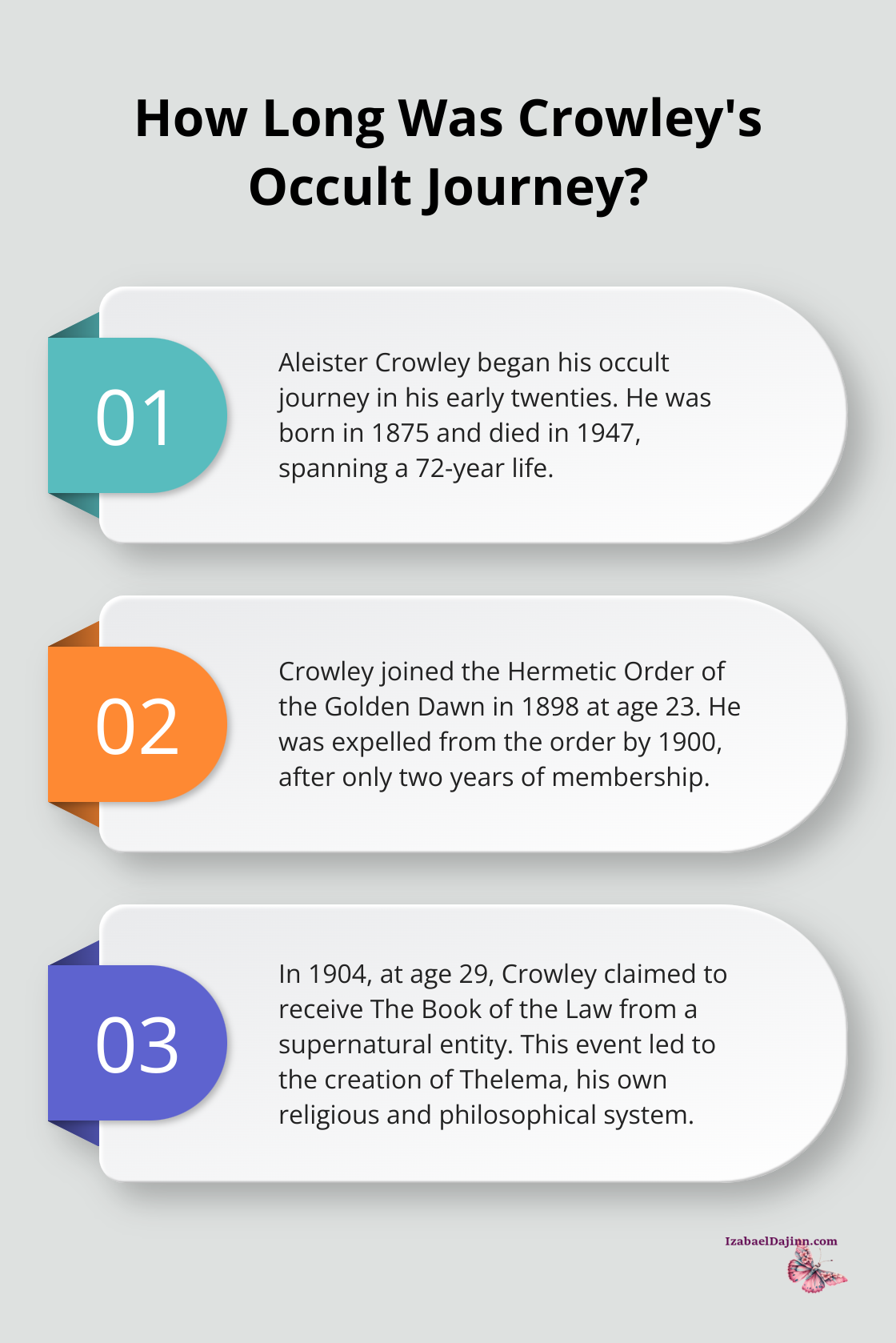
Fast forward to 1898, and Crowley lands himself a membership in the Hermetic Order of the Golden Dawn. Think of it as the Ivy League of secret societies, dedicated to all things occult, metaphysical, and paranormal. The Golden Dawn was more than just a phase for Crowley; it was a crucible shaping his magical philosophy. But alas, in true rockstar fashion, his controversial antics and non-stop beef with other members got him the boot by 1900.
Undeterred, our maverick went globetrotting, lapping up Buddhist, Hindu, and Kabbalistic wisdom – sort of an esoteric buffet – and blended these elements into his own magical gumbo.
The Birth of Thelema
The game-changer? In 1904, Crowley claims, he got a hotline to a supernatural entity named Aiwass. This astral chat resulted in The Book of the Law, the cornerstone for Thelema – Crowley’s magnum opus in religious and philosophical systems.
The big idea in Thelema? “Do what thou wilt shall be the whole of the Law.” It’s a mic drop moment that redefined personal will and freedom, basically chucking traditional morality out the window and flipping the bird to religious dogma. Naturally, some folks saw him as a prophet – others, not so much.
Magick and Ritual Innovations
Crowley had a flair for drama and even rebranded “magic” as “Magick” (yep, with a ‘k’) – to set it apart from run-of-the-mill stage tricks. He framed Magick as “the Science and Art of causing Change to occur in conformity with Will.” Sounds fancy, right?
Here’s a sneak peek into Crowley’s toolkit:
-
The Gnostic Mass: This isn’t your Sunday service. It’s a ritual-turned-spectacle celebrating Thelema’s principles and conjuring spiritual forces.
-
Sex Magick: Crowley believed sexual energy was the rocket fuel for magical purposes – weaving this edgy element into a bunch of his rituals.
-
Enochian Magic: Building on the work of John Dee and Edward Kelley, Crowley made Enochian practices his own.
-
Yoga and Meditation: He snagged Eastern practices and gave them a starring role in his Magick system, emphasizing their utility in spiritual muscle-building.
The Ongoing Legacy
Crowley’s wild ride in the occult didn’t hit the brakes with his death in 1947. His writings and teachings are like haunted relics – they keep popping up to inspire and provoke practitioners across the magical spectrum. Even today, groups like the Ordo Templi Orientis (O.T.O.) and the A∴A∴ carry Crowley’s torch, safeguarding and innovating on his blueprints.
But Crowley’s shadow? It’s massive. His fingerprints are all over modern occult practices, from Wicca to chaos magic. His concoctions – both brilliant and abrasive – still color the ever-evolving landscape of esoteric thought.
So as we turn another page in the extensive almanac of modern occultism, it’s clear Crowley’s legacy – love him or loathe him – continues to twist, turn, and tantalize the fabric of esoteric exploration.
How Crowley Shaped Modern Occultism
Aleister Crowley’s impact on modern occultism is, well, kind of a big deal. His teachings and practices have seeped into various magical traditions, flipping the script on esoteric thought and practice.
Wicca and Neopaganism: Crowley’s Unexpected Influence
So, Crowley’s ideas did a little sneak-attack into Wicca, despite stark differences with neopagan beliefs. Gerald Gardner, the guy dubbed the father of modern Wicca, basically lifted chunks from Crowley’s rituals and writings. When Gardner drafted his own Wiccan rituals, he had Crowley’s playbook from 1912 right in front of him. These two were like philosophical pen pals.
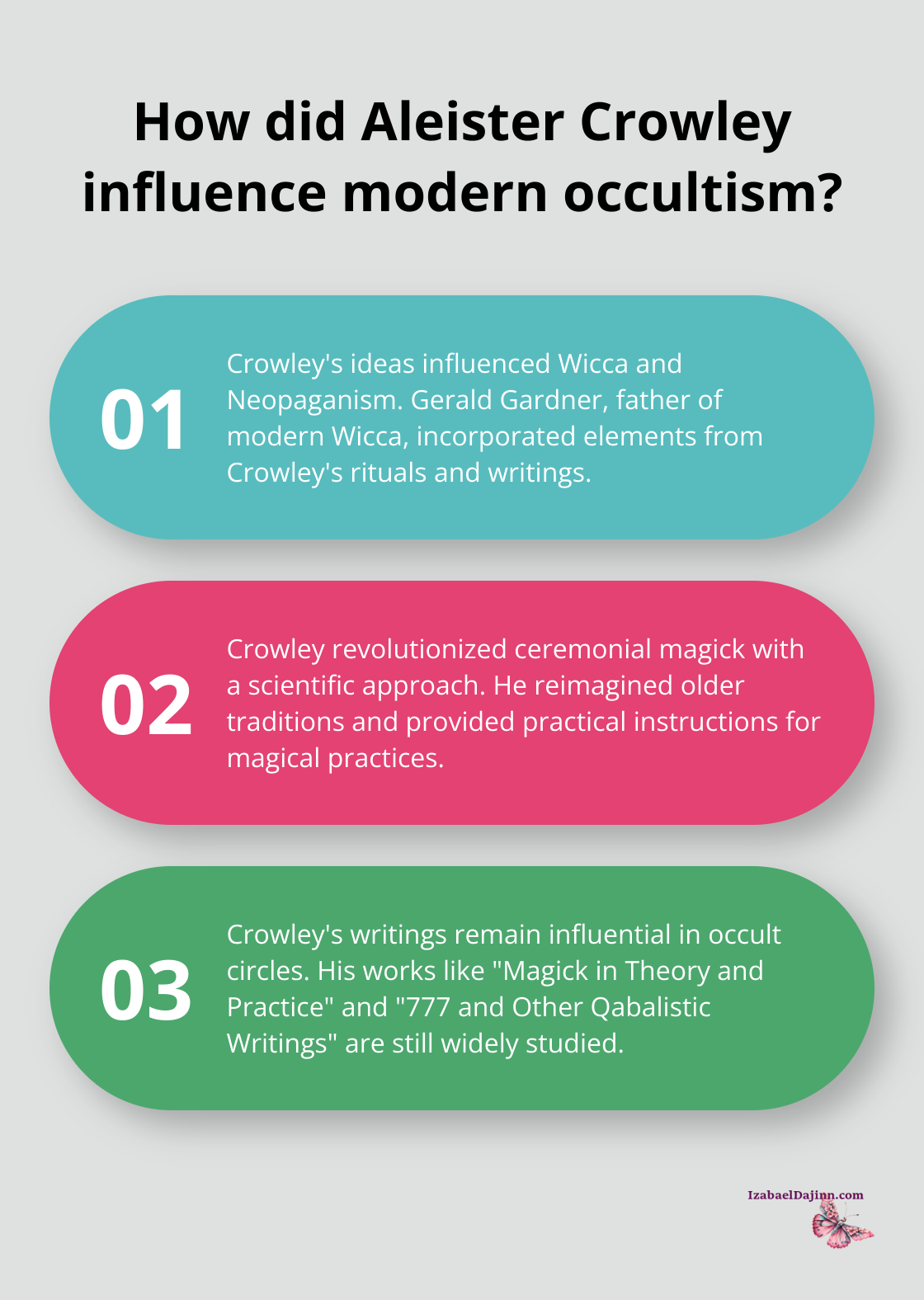
And it wasn’t just ink on paper. Crowley’s spotlight on the importance of will in magical practice… it’s like a siren song in Wiccan circles. Today, you’ll find heaps of Wiccans mixing in elements of Thelemic philosophy into their magic bag of tricks (even if they wouldn’t shout out Crowley by name).
Revolutionizing Ceremonial Magick
Enter: Crowley’s groundbreaking contributions to ceremonial magick. He took older traditions, polished ‘em up, and served them with a modern twist. Take his work on the Goetia – he didn’t just dust it off; he reimagined it, giving practical, step-by-step ghostbusting instructions.
One of his standout moves? Crowley pushed for a scientific approach to magic. Detailed logs of rituals, experimental mindset… Treating magic like a lab experiment. Crowley’s esoteric work was a double act: magic and Yoga. He gave these disciplines a whole new groove.
The Enduring Relevance of Crowley’s Writings
Crowley wasn’t shy with the pen, and his works are still dissected and debated in occult circles. “Magick in Theory and Practice” and “The Book of Thoth” – these aren’t just books; they’re borderline sacred texts for budding magicians.
The secret sauce? A mix of hands-on advice and mind-bending philosophy. Take “777 and Other Qabalistic Writings,” for instance. It’s like a magical encyclopedia, still the go-to reference for many.
But, let’s not get carried away – diving into Crowley isn’t a walk in the park. His writings can be dense, kind of a word maze. Better to start with something like “Book 4” before venturing into the deeper waters.
The Legacy Continues
Crowley’s stamp on modern occultism is a tangled web of brilliance, innovation, and – let’s be honest – some controversy. His personal life and wild practices? Yeah, those are still hot debates. But his contributions to magical theory and practice are undisputed. As occult traditions morph and grow, Crowley’s shadow lingers, nudging practitioners to question, experiment, and stretch the limits of belief.
This enduring influence sets the stage for our next topic: the more contentious chapters of Crowley’s legacy, still firing up debates and divisions within the occult community.
Crowley’s Controversial Legacy
The Enigmatic Occultist
Aleister Crowley-polarizing, to say the very least. His imprint on modern occultism is as undeniable as it is divisive. The mere mention of his name splits the room faster than a sped-up video of a banana-peeling contest. This chapter? We’re diving headfirst into the tangled web of Crowley’s reputation. Buckle up.
A Life of Excess and Scandal
Victorian society must’ve had a collective fainting spell when Crowley hit the scene. Think “The Great Beast 666” (yes, he embraced that)-a veritable maelstrom of drugs, sex, and all things taboo. He was the walking, talking scandal of his time. But here’s the kicker: all that notorious living has a tendency to overshadow some pretty substantial intellectual meat. It’s like dismissing Einstein because he didn’t comb his hair.
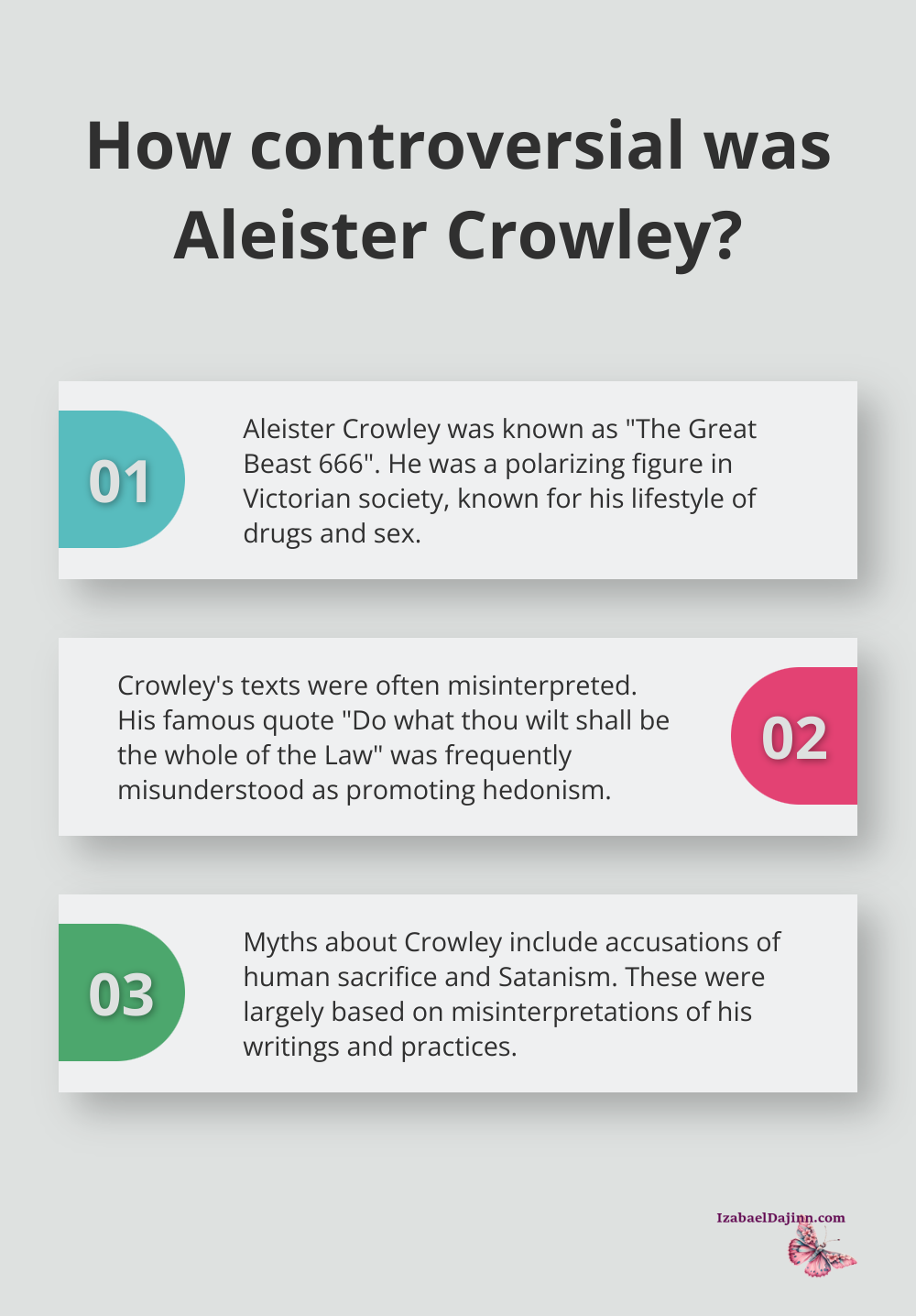
So, we’re talking balance here, folks. Sure, Crowley’s lifestyle was… colorful. But tossing out his magical work due to personal quirks? That’s throwing the baby out with the bathwater.
Misinterpretations and Misconceptions
Crowley’s texts-dense, symbolic jungles. Not exactly light beach reading, right? The oversized problem? Misinterpretation. That infamous “Do what thou wilt shall be the whole of the Law”? Usually butchered as a carte blanche for hedonism. In reality, it’s a deep dive into discovering your true will. It’s not “do whatever you want”; it’s more “find and do what you’re meant to.”
His penchant for transgression? Critics cry “dangerous,” “unethical,”-you name it. But defenders argue it’s all about breaking away from the mundane to spark real spiritual growth.
Debunking Myths
Oh, the myths. Crowley and human sacrifice? A colossal misread of his writings on symbolic sacrifice during rituals. And labeling him a Satanist? Despite his outright rejection of Christian theology, people leap to that conclusion. Navigating these waters? Start with reputable sources. Richard Kaczynski’s “Perdurabo”-a superb, well-documented guide.
The Ongoing Debate
Crowley’s legacy? Still a hot topic. Scholars, practitioners-they’re dueling it out over his real impact. Some hail him as a groundbreaking visionary; others, a destructive rebel. It’s this debate that underscores the complexity of his contributions. Critical thinking and personal discernment are key. Engaging with Crowley’s work (or any occult stuff, really) isn’t a passive ride.
For the brave souls wanting to delve into Crowley’s lesser-known teachings and practices-there’s gold in those hills, but it requires some serious spelunking.
Final Thoughts
Aleister Crowley-love him or hate him-his occult influence still shapes modern esoteric practices. We can’t deny the man’s left a big, controversial footprint on Western occultism. His life and teachings? Total mixed bag. People keep debating, trying to untangle the mess, figuring out if he’s a mad genius or just… mad. Crowley’s stuff, from Thelema to his ceremonial magick-it’s essentially laid the groundwork for a ton of magical traditions.
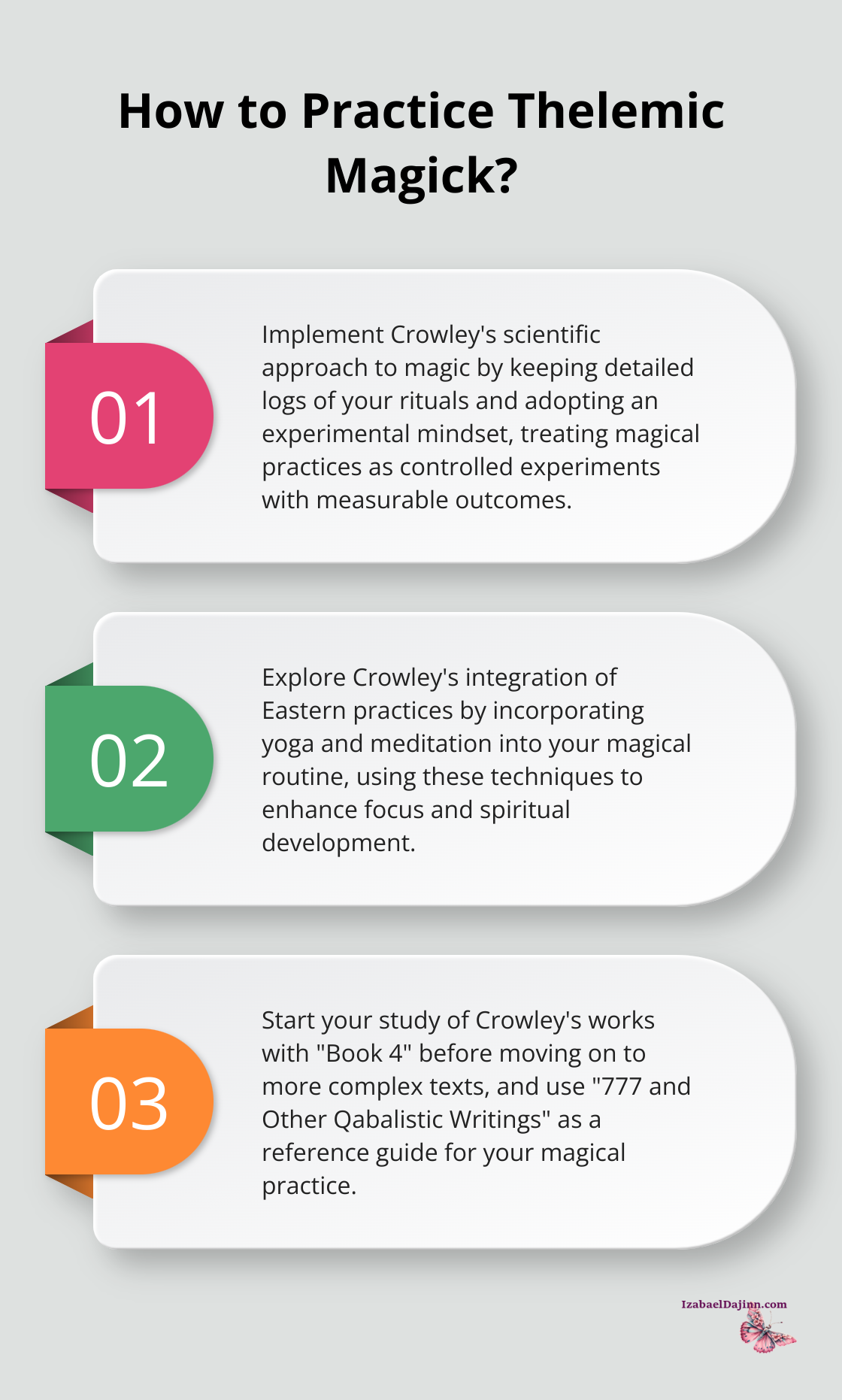
To really get Crowley’s work, you gotta dig into the historical and cultural backdrop. He didn’t just come outta nowhere; his ideas bubbled up from the intellectual stew of his time. Plus, sprinkle in his unique adventures, and you’ve got a recipe for some radical (and sometimes flawed) thinking… kinda like any big philosophical system, right?
If you’re curious about diving into Crowley’s world, a word to the wise from Izabael’s Occult Review-tread carefully. Start with credible sources and keep that critical thinking hat on. As you dive deeper into the occult world, don’t miss the range of spells and practices we’ve laid out at Izabael’s Occult Review.
